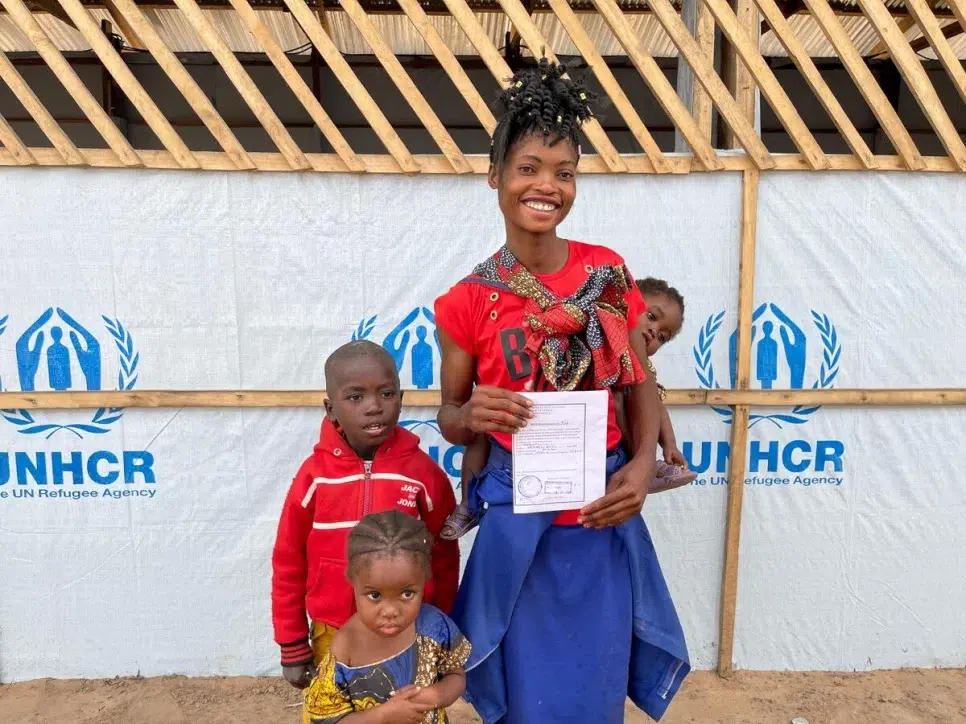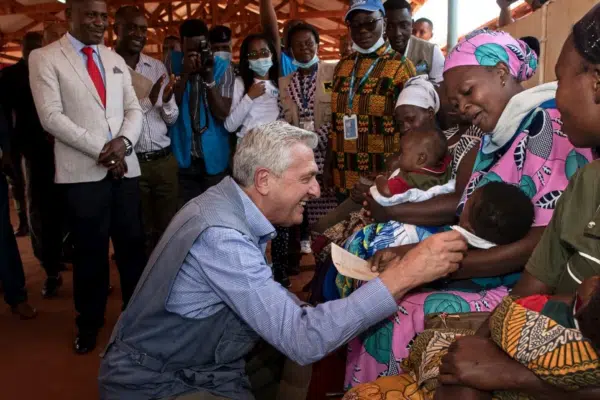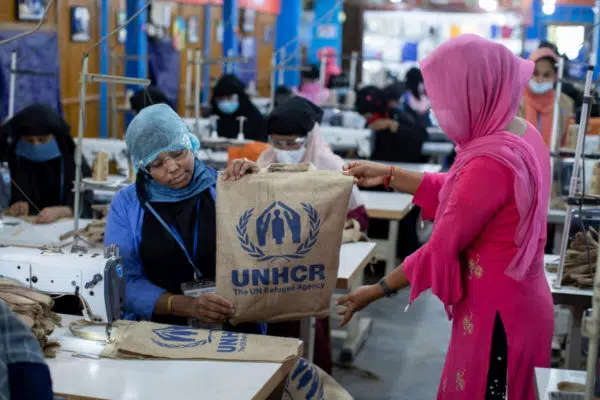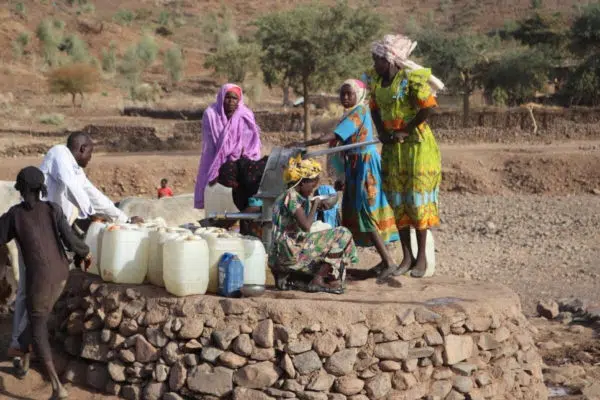
Mamie holds a document that will help her son enrol in primary school, which she received at the transit Center in Pweto, Haut Katanga Province, the Democratic Republic of the Congo. © UNHCR/Aline Irakarama
This is a summary of what was said by UNHCR spokesperson – to whom quoted text may be attributed – at today’s press briefing at the Palais des Nations in Geneva
UNHCR, the UN Refugee Agency, with the governments of Zambia and the Democratic Republic of the Congo (DRC), has helped nearly 6,000 Congolese refugees to return home since December 2021.
The refugees fled political and inter-ethnic clashes in the DRC’s southeast region in 2017 and found safety in Zambia.
They have expressed excitement and joy at returning home and looking forward to reuniting with family and friends and starting their lives anew.
Refugees have been issued voluntary repatriation documents and have received expedited immigration clearance, health screening, security, food and water prior to returning. Children account for nearly 60 per cent of the refugees.
Children born in Zambia were issued birth certificates as proof of their identity. The Ministry of Education issued transfer documents to schoolchildren, enabling them to continue their education in the DRC.
Those with special needs are being supported by caregivers from Zambia’s Ministry of Community Development and Social Services to ensure they travel in safety and dignity.
Voluntary repatriation of refugees from Mantapala settlement in Luapula province to Pweto in Haut-Katanga province in DRC began in December 2021. The refugees have been transported on buses in weekly convoys of approximately 600 people to the Lunkinda border post. While parts of the country remain highly insecure, other regions like Haut-Katanga have been stable, allowing for the returns.
More than 11,000 Congolese refugees are registered to go back to DRC by the end of 2022 following the declaration of improved security in some areas of Haut-Katanga province.
At a UNHCR transit centre in Pweto (DRC), where the returnees are accommodated for two days, Congolese authorities issue documentation, including birth certificates for newborn babies and school certificates, to allow them to quickly integrate and access services. UNHCR’s health partner also conducts medical screening, and cases with special needs receive basic treatment.
Returnees also receive cash assistance to help cover basic expenses upon arrival home. This covers transportation to their destination, hygiene and household items, and initial rent assistance. Based on family size, a month’s supply of pulses, maize meal, oil and salt is also given to returnees.
Additional reintegration assistance, such as helping children in enrolling in school, is also provided.
UNHCR will continue to advocate with the Government of the DRC and traditional authorities, who are critical partners in their reintegration, for the enrollment of children in schools, security, access to employment and provision of key civil documentation.
The voluntary repatriation of Congolese refugees is conducted on the basis of the tripartite agreement signed in 2006 by UNHCR and the Governments of Zambia and the DRC.
Over 18,000 Congolese have lived in Mantapala settlement, where they acquired livelihood skills, including farming, carpentry and artisan crafts.
According to a country-wide verification exercise, Zambia hosts 95,677 refugees, asylum-seekers and former refugees. These include 60,236 from DRC. Nearly a million Congolese refugees are still hosted in neighbouring countries.
Millions of refugees dream of going home in safety and dignity. Voluntary repatriation requires a full commitment by the country of origin to help reintegrate its own people and the continuing support of the international community.
UNHCR’s financial requirement for Zambia this year is US$24.4 million and US$225.4 million for the DRC. As of 20 September, however, the operations have been only 23 per cent and 35 per cent funded respectively.
For more information on this topic, please contact:
- In Lusaka, Kelvin Shimo, shimo@unhcr.org, +260 97 958 5832
- In Kawambwa, Bruce Mulenga, mulenga@unhcr.org, +260 97 748 0191
- In Kinshasa, Joel Smith, smithj@unhcr.org, +243 825257774
- In Pretoria (regional), Hélène Caux, caux@unhcr.org, +27 82 376 5190
- In Pretoria (regional), Pumla Rulashe, rulashe@unhcr.org, +27 82 377 5665
- In Geneva, Boris Cheshirkov, cheshirk@unhcr.org, +41 79 433 7682
- In New York, Kathryn Mahoney, mahoney@unhcr.org, +1 347 574 6552





